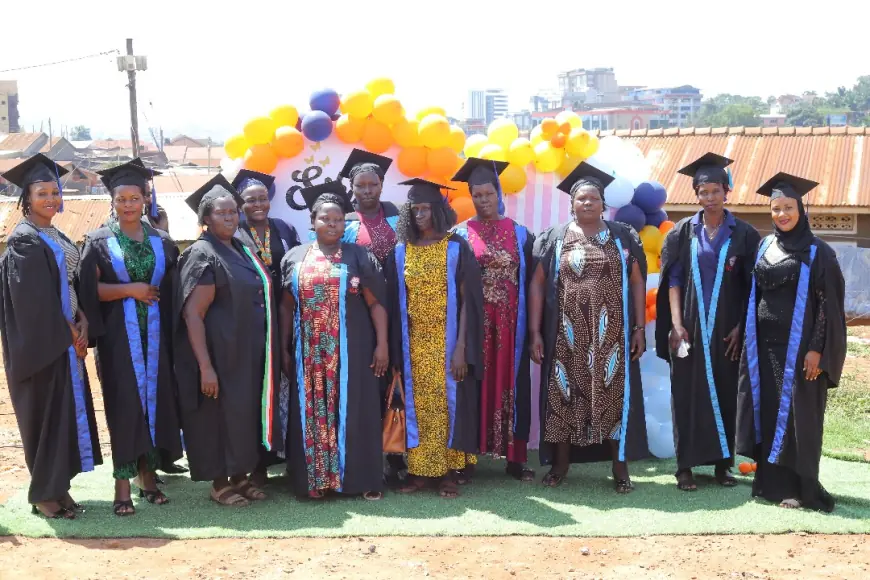Empowering Women Through Vocational Training: A Step Towards Economic Inclusion in Uganda

Following changes to the city's legislation that led to street vendors vacating the streets under the Kampala Capital City Authority a few years ago, women were particularly affected.
In response, Strategic Initiative for Women in the Horn Of Africa (SIHA) since 2017 has supported women market and street vendors (WMSVs) in Nakawa, Kawempe, and Kampala Central divisions since 2017to form successful cooperatives that facilitate idea exchange and improve livelihoods. These cooperatives also serve as advocacy platforms to challenge the hostile laws and policies under which the vendors operate.
On November 20, 2024, the Naguru Women Market Street Vendors Cooperative held its first Graduation Ceremony in Bank Village Naguru, where 25 women graduated after completing a three-month training in Crafts and Shoe Making. The training center was established with the financial support of SIHA Network, which is a coalition of over 150 women’s rights organizations from Sudan, South Sudan, Somalia, Somaliland, Ethiopia, Eritrea, Djibouti, and Uganda. This network works to address and challenge women’s subordination and violence against women and girls in the Greater Horn of Africa region.

Ms Nassali Sandra
At the event, Ms. Nassali Sandra, the Regional Advocacy and Communication Coordinator for SIHA Network, emphasized that “for women market and street vendors, the cooperatives provide networks of mutual support and solidarity that help them build social capital, boost their self-esteem and self-reliance, gain a stronger voice in decision-making, and collectively negotiate better working conditions.”
She also noted, “Vocational skills like craft making help women and youth thrive and achieve their dreams while addressing the unemployment crisis. Expanding such vocational training centers across Uganda should be a key part of government initiatives, with subsidized rates for youth and women. This is particularly critical given the high unemployment rates in Kampala and the low completion rates, which are under 20% from Primary to Secondary school.”
Ms. Nassali further pointed out the numerous challenges women face, including the lack of social protection. As workers in the informal sector, they are often denied essential security and protection, which leaves them vulnerable to eviction, arrest, and property confiscation by city authorities. These issues have received limited attention despite the fact that their work contributes significantly to Uganda’s economy. She added, “Their contributions are often invisible to national and regional economic policymakers, and their efforts to sustain their communities’ livelihoods are not recognized or formally supported. It is time for this to change.”
Mr. Jimmy Beyange, the Naguru II Parish Zone 4 Councilor, also spoke at the event, praising SIHA Network’s work in empowering the women of Naguru. He acknowledged that under their program, many women, especially single mothers, had been empowered.
Ms. Achiro Florrence, a former street vendor, shared her personal story, saying she stopped vending because she realized it wasn’t helping her grow. After joining politics, her objective became advocating for the women of Naguru. Once elected as a Councilor in the area, she mobilized fellow women to create the Naguru Shoe Makers and Crafts center, drawing on the knowledge and skills gained through SIHA Network’s training.












